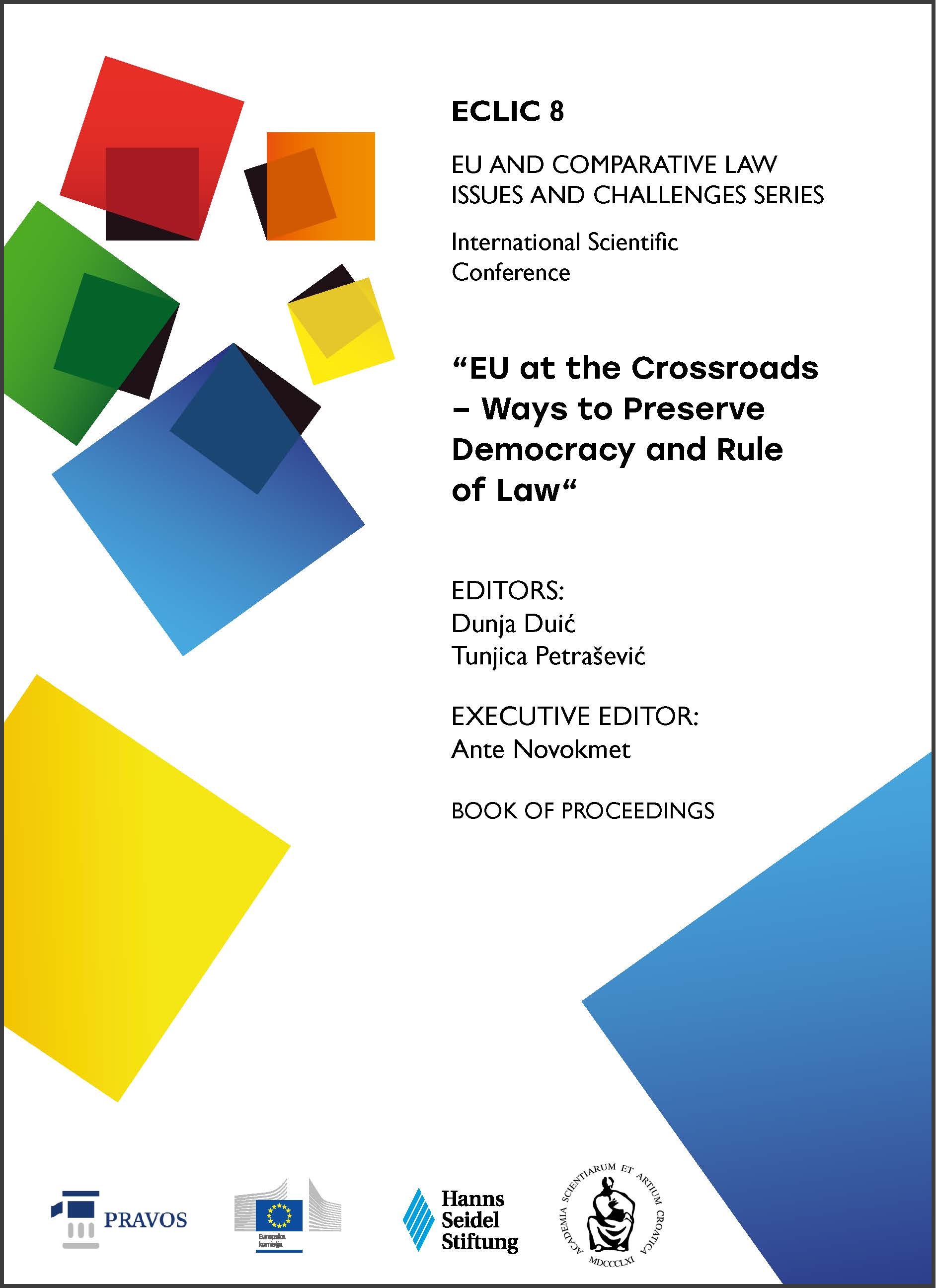SELF-DETERMINATION OF THE EUROPEAN UNION
DOI:
https://doi.org/10.25234/eclic/32292Abstract
The European Union is not just an international organization. It is a unique political and legal system based primarily on the fundamental principles of democracy and the rule of law. As such the European Union has a right of self-determination, namely that its own political mechanisms “freely determine its political status and freely pursue its economic, social and cultural development. While it is undisputable that Members of the European Union have the right of “national” self-determination within the European Union, the self-determination of the European Union, as such, is a concept still almost unknown in political and legal theory and practice. However, the Treaty on the European Union and the Treaty on the Functioning of the European Union already provide enough elements for the identification and conceptualization of the self-determination of the European Union as understood in international law (and politics).
Self-determination of the Member States and self-determination of the European Union can exist as separate and interconnected concepts that might provide an adequate legal and political framework for further development of the European Union, its identity, key values and ends of its internal and foreign policy. Recognition and conceptualization of the right of self-determination, not only in political and legal theory but also in the political practice of the European Union might be a further step in the development of the European Union, as “a new stage in the process of creation an ever-closer union among the peoples of Europe”.
While the concept of self-determination of the European Union might be developed in the existing legal framework, namely in accordance with the founding treaties, it seems that it should have a proper place in its forthcoming revision. The recognition of the self-determination of the European Union certainly improves the very concept of the identity of the European Union and the perception of its role in international affairs.
Downloads
Published
How to Cite
Issue
Section
License
Copyright (c) 2024 Aleksandar V. Gajić

This work is licensed under a Creative Commons Attribution-NonCommercial 4.0 International License.
Authors retain the copyright on the papers published in the Journal, but grant the right of first publication to the Journal. Papers accepted for publication or already published in ECLIC of the Faculty of Law in Osijek may be published by the author(s) in other publications only with proper notice of its previous publication in ECLIC.


